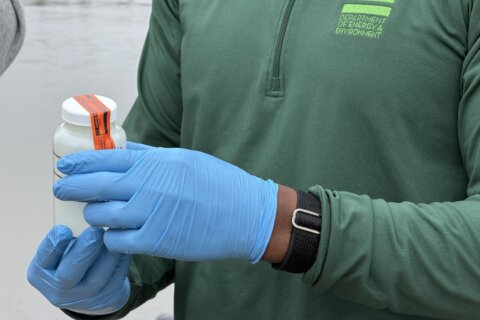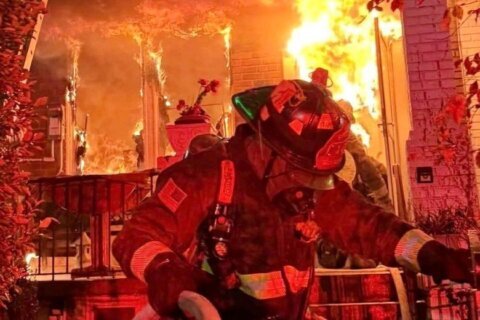For the first time, homes are for sale at St. Elizabeths East Campus in Southeast D.C.
The project, known as District Towns, brings 88 town houses — including 27 affordable units — to the old hospital campus in Ward 8.
Overall, 14 of the affordable units will be available to households with an annual income at or below 50% of the median family income, and 13 of the affordable units will be available for households with an annual income of at or below 80% of the median family income.
According to the developer’s website, the market-rate town houses are priced from the mid $500,000s.
LIVE: Mayor Bowser Celebrates First Opportunity for Homeownership on the St. Elizabeths Campus with Unveiling of District Towns Townhomes https://t.co/X3nglC87Fv
— Mayor Muriel Bowser (@MayorBowser) April 25, 2022
The 183-acre lot, nested in the Congress Heights neighborhood, was once the site of a sprawling psychiatric facility, and is now one of the District’s largest redevelopment projects.
In recent years, a multimillion-dollar sports and entertainment center — home to the WNBA’s Washington Mystics — was built on the campus, as well as an affordable apartment complex.
In the coming years, a George Washington University-staffed hospital is slated to open, as well as new offices and retail and mixed-income properties for sale and rental housing.
During a ribbon-cutting ceremony Monday celebrating the District Towns project, Mayor Muriel Bowser said that creating opportunities for home ownership in the District is a top priority of her administration.
“Everyone knows, and it’s worth restating, that Black wealth is created in this city when people own their homes and they can build equity in their homes,” Bowser said.
Bowser has set a goal of creating 36,000 new housing units in the District by 2025.
John Falcicchio, deputy mayor for planning and economic development, said during the ceremony that the administration is already 60% of the way toward reaching that goal.
“In that there’s also a sub goal and that sub goal is to deliver 12,000 affordable units as part of the 36,000,” Falcicchio said. “And we’re about a third of the way there.”
Like many big cities, D.C. is facing a housing shortage, exacerbated by a pandemic-fueled home buying frenzy.








